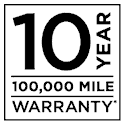Car Battery Service FAQ Near Knoxville, TN
Car Battery Service & Replacements
Battery Service Center near Knoxville, TN
For your battery needs, Rusty Wallace Kia Alcoa guarantees premier service at our conveniently located service center near Knoxville, TN. We offer comprehensive testing, charging, and replacement services that you can trust. Choose us for reliable and efficient battery service.
Car Battery FAQs
What type of battery is found in a car?
The lead-acid battery is a popular type of battery. It's used in most modern vehicles on the roads today. This is due to its exceptional reliability and durability. It also has a high current output, which is necessary to power up an engine.
The battery's external shell is often made of plastic and houses numerous individual cells. Each shell features lead plates submerged in a solution of sulfuric acid and water-electrolyte. This composition makes the battery rechargeable. The vehicle's alternator recharges the battery while the engine is running. This type of battery provides power to the car's electrical systems and accessories, even when the engine is off. It powers the car's lights, radio, and air conditioning, among other things.
How long will a car battery last?
The lifespan of a car battery depends on several factors, including:
- The quality of the battery
- Your driving habits
- Weather conditions
- Maintenance practices
Generally, car batteries last three to five years. Some may fail prematurely, while others can last beyond five years.
What affects the lifespan of a car battery?
Extreme temperatures, both hot and cold, can affect the lifespan of a car battery. High temperatures speed up the battery's chemical reactions and lead to faster degradation. Omit, cold temperatures reduce the battery's capacity to deliver power.
Another factor that may affect battery lifespan is frequently taking short trips. Short trips that are under five minutes cause a high number of engine starts. That's not enough time for the battery to fully recharge, which can lead to a gradual loss of capacity over time.
It's a good idea to regularly check the battery's performance. You should be prepared to replace it within three to five-year. If you see signs of deterioration, such as slow cranking, dim lights, or frequent jump-starts, you may have to replace it sooner.
Does a car battery need maintenance?
Maintaining car batteries on a regular basis is crucial for maximizing their lifespan. The following are some strategies for car battery maintenance:
- Clean the battery terminals. Sometimes, corrosion can build up on battery terminals. Corrosion can inhibit the passage of electricity. Cleaning the battery can keep them free of corrosion. You can use a wire brush and a mixture of baking soda and water for thorough cleaning.
- Check electrolyte levels in the battery (if relevant). Some types of car batteries, especially older models, require regulated electrolyte levels. If your battery has detachable caps, scrutinize the electrolyte levels cautiously and top up with distilled water if needed. Be mindful when dealing with battery acid and adhere to proper safety protocols.
- Make sure the battery is secure. Check that the battery is firmly fixed in its holder to avoid excessive vibrations. This can damage the battery and its connections.
- Examine the battery case. Frequently check the battery case for any signs of damage or leakage. If you see any cracks, swelling, or signs of acid leakage, it's important to replace the battery immediately.
- Check the battery's voltage. By using a multimeter, you can test the voltage of the battery to monitor its health. A battery in full charge should display approximately 12.6 volts. A significant drop in voltage could suggest a weak or depleted battery, necessitating a recharge or replacement.
Always refer to your vehicle's owner manual for specific guidelines provided by the manufacturer.
How can I tell if my car battery needs to be replaced?
- Reduced Cranking Power: Signs of a failing battery can be slower engine cranking or needing several tries to ignite the engine.
- Constant Jump-Starts: Regular reliance on jump-starts to get your vehicle going could suggest a battery incapable of holding charge, indicating the need for replacement.
- Battery Indicator Light: If the battery light on the dashboard stays on while you drive or lights up during ignition, it's worth checking the health of the battery.
- Inflated or Swollen Battery Case: A swollen or bloated battery case points to internal damage and requires immediate replacement. It is risky to use or charge a battery in this state.
- Corrosion and Leaks: Look for any signs of corrosion, which often appears as a white, powdery substance around the terminals. Also, examine the battery case for leakage evidence, like fluid marks or a sulfur smell. These conditions can hamper the battery's efficiency and suggest the need for a new one.
- Electrical System Irregularities: An underperforming battery can cause miscellaneous electrical issues in your car. If you notice odd behaviors like malfunctioning lights, erratic power window functions, or audio system problems, the battery could be at fault.
Schedule Battery Service at Rusty Wallace Kia Alcoa
If you notice any signs that your battery needs to be replaced, bring it to Rusty Wallace Kia Alcoa. We’ll test your battery and, if necessary, replace it. Visit our service center near Knoxville, TN, when you need battery services.


 Warranties include 10-year/100,000-mile powertrain and 5-year/60,000-mile basic. All warranties and roadside assistance are limited. See retailer for warranty details.
Warranties include 10-year/100,000-mile powertrain and 5-year/60,000-mile basic. All warranties and roadside assistance are limited. See retailer for warranty details.